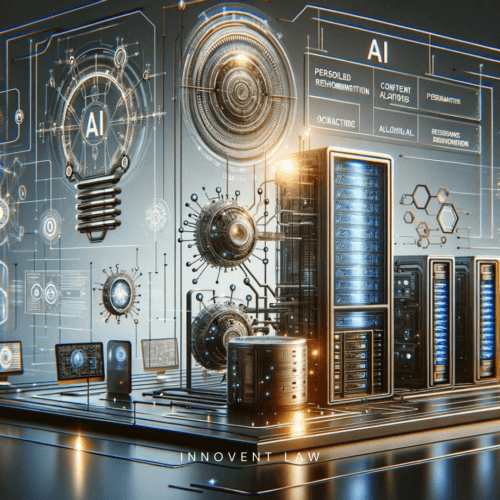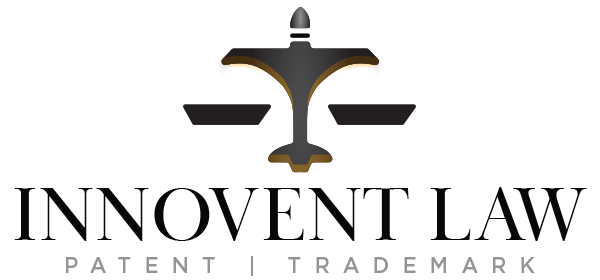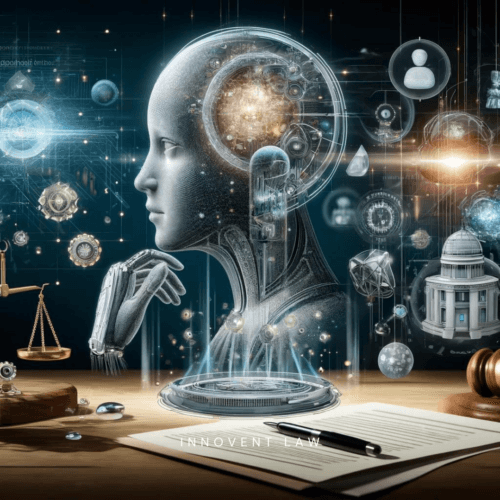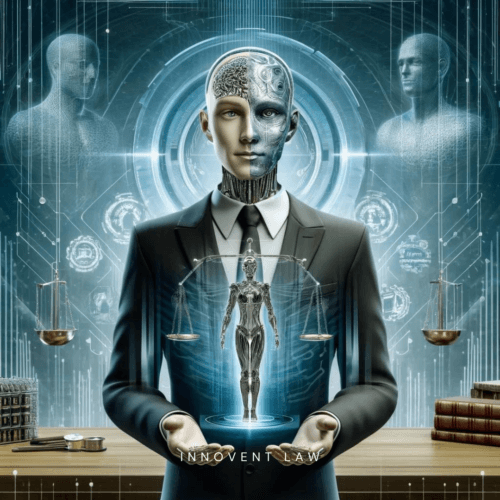Can AI Hold Patents According to the US Patent Office?
The landscape of technology is rapidly evolving, with artificial intelligence (AI) at the forefront of innovation. As AI transforms various industries, it’s crucial to grasp the complexities of AI patents within the United States. Let’s understand about US Artificial Intelligence patents, AI tools, AI models, AI innovations, AI generated inventions, AI patent search and the broader implications on intellectual property rights.
In the realm of intellectual property, AI cannot currently hold patents. The US Patent and Trademark Office (USPTO) has explicitly stated that only humans or legal entities can own patents. This policy reflects the belief that creativity and inventorship require human intellect. For a deeper understanding of the USPTO’s stance, refer to their detailed guidelines.
What Are Some AI Patents Examples?
AI USPTO patents encompass a wide array of applications, demonstrating the functionality of AI technologies. Google has a patent for AI that helps manage data center resources. Netflix has a patent for algorithms that recommend personalized content based on user preferences. These examples showcase AI’s capacity to transform processes and consumer interactions.
These innovations not only streamline operations but also enhance user engagement, illustrating AI’s potential to transform industry practices. For more examples of AI patents, explore the World Intellectual Property Organization’s insights.
- If you’re working on a new invention where you’re using AI, feel free to contact us so we can strategize. Essentially, if you’re using AI to improve an already existing system, the addition of AI alone might not be enough to secure a patent. Things can get complicated here, so if you’re on the fence, let’s discuss.
Can AI Be an Inventor and Have Patent Rights?
The question of AI as an inventor continues to provoke global debate. US Courts and the Court of Appeals for the Federal Circuit affirmed that AI cannot be an inventor on a given patent; only humans can be inventors. However, the conversation is evolving, and changes in legislation may redefine what constitutes an inventor. Keep up with the latest developments through this comprehensive article.
What About AI Assisted Patents?
You can patent AI software if it is new, not obvious, and helpful. These patents examinations typically cover specific functionalities provided by AI algorithms that solve practical problems. As software continues to integrate AI, these ai assisted inventions, patents become crucial in protecting exclusive technology. For more information on AI in software patents united states, review the USPTO’s report.

How Does Artificial Intelligence Affect Intellectual Property?
The situation with OpenAI’s ChatGPT copying Scarlett Johansson’s voice shows a problem with artificial intelligence and intellectual property rights. This case raised concerns about personality rights. These rights protect people from unauthorized use of their identity. This includes their voice, image, and unique traits.
Potential Legal Implications
The simulation of Scarlett Johansson’s voice by AI technology brings to the forefront the challenge of how existing laws interpret and manage AI-generated outputs that closely resemble the identities of real people. While copyright protection law protects original works of authorship, personality rights safeguard against the commercial misuse of a person likeness without consent. This incident suggests that AI can potentially infringe on these rights, sparking debates about whether current intellectual property laws are equipped to handle such scenarios.
Should We Be Worried?
Concerns about AI and its capabilities to replicate human characteristics are valid and warrant attention. As AI technologies become more sophisticated, the potential for misuse increases, possibly leading to violations of personal rights and existing legal frameworks. This situation calls for a careful assessment of the ethical use of AI and the establishment of clear regulations that prevent misuse while supporting innovation.
The Need for Evolving IP Law
The Scarlett Johansson case exemplifies the urgent need for IP laws to evolve in tandem with technological progress. Current IP and copyright law says were not designed with AI in mind, and as such, they may fall short when it comes to addressing the unique challenges posed by AI technologies. There is a pressing need for updated legislation that can adequately address the nuances of AI in the creation and replication of intellectual content.
Broader Implications for AI Intellectual Property
AI’s ability to generate content that mirrors human output affects more than just personality rights. What challenges the very foundations of copyright and patent law, questioning what constitutes authorship and invention. The integration of AI in creative and inventive processes requires a rethinking of how we define and protect intellectual creations. This is not only a legal challenge but also an ethical one, as it pertains to the ownership and control of AI-generated content.
The implications of AI technologies like ChatGPT on intellectual property rights are profound and complex. As AI continues to advance, it is imperative that legal systems adapt to safeguard individual rights without stifling technological and creative progress. For anyone involved in the creation or use of AI technologies, staying informed and engaged with these developments is crucial. The Scarlett Johansson voice simulation serves as a case study on the potential pitfalls of AI in the realm of IP and underscores the importance of proactive legal and ethical consideration.
For further insights into how AI is reshaping intellectual property rights and the implications for creators and innovators, consider reading the detailed analysis provided by The Verge.
Breakdown of What You Should Know About Using AI for Your Invention
Using AI in the invention process requires creativity, careful planning, and following legal rules. Here’s a detailed guide on how to strategically integrate AI into your inventions:
IP Ownership
When AI contributes significantly to the creative processes of an invention, defining intellectual property (IP) ownership becomes crucial. Deciding who owns the intellectual property (IP) created by AI it’s important: the creators, the organization, or both. This ensures that all parties understand their rights and responsibilities and helps prevent potential disputes. Establishing transparent contracts concerning intellectual property rights for inventions that incorporate AI is crucial right from the outset.
Adherence to Regulations
Utilizing AI in inventions requires strict compliance with both ethical standards and legal regulations, especially concerning data privacy. Inventors must ensure that the data used by AI systems is collected and processed in accordance with applicable privacy laws, such as GDPR in Europe or CCPA in California.
This involves asking for permission, protecting data with strong security, and explaining how AI systems use the data. Non-compliance can lead to significant legal repercussions and damage the reputation of the organization.
Detailed Documentation
Maintaining detailed records of AI’s involvement in the development process is crucial, particularly for patent applications. Recording the choices made in designing can show how unique and effective the invention is. The steps taken in creating algorithms can also demonstrate the invention’s effectiveness. Additionally, documenting the data used and the AI’s contribution can further highlight the uniqueness of the invention.
These records are important for showing the special parts of your invention when applying for a patent. They can also be crucial for protecting the patent in legal battles or negotiations.
Consulting Registered Patent Attorneys
Navigating the complexities of AI-related patents requires professional guidance. Registered patent attorneys who specialize in AI technology can provide invaluable advice on how to protect your invention.
They can help write patent applications that describe your AI inventions accurately and give advice on legal problems. Get advice from registered patents attorneys at Innovent Law to help protect your patents and intellectual property effectively.
Integrating AI into your inventions offers tremendous potential but comes with significant legal and operational challenges. By carefully planning IP ownership, adhering to regulations, keeping detailed documentation, and consulting with knowledgeable patent attorneys, you can leverage AI to not only enhance your inventions but also protect and maximize your intellectual property assets effectively.


